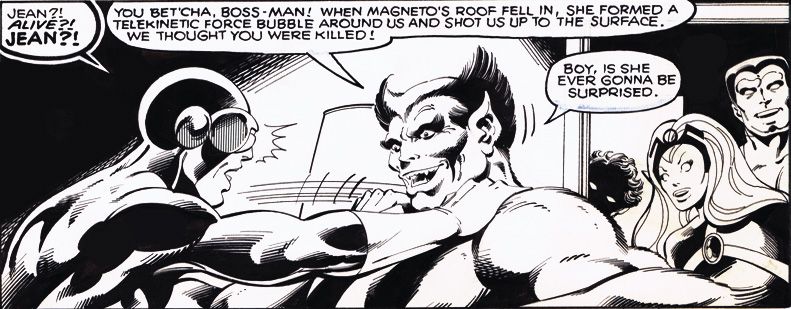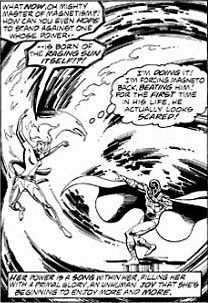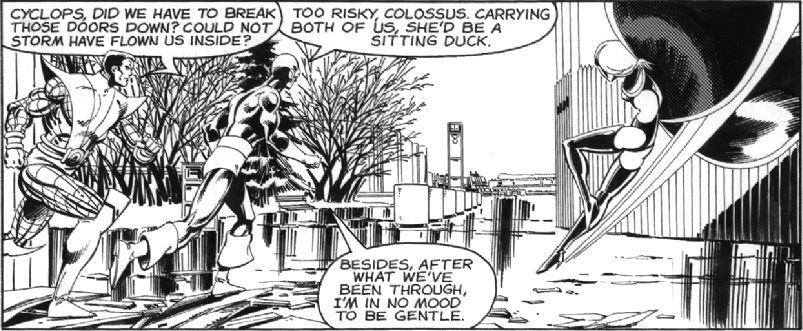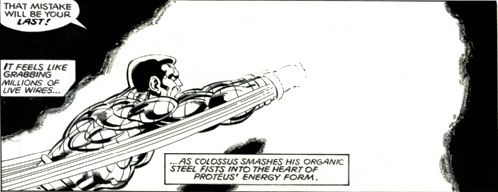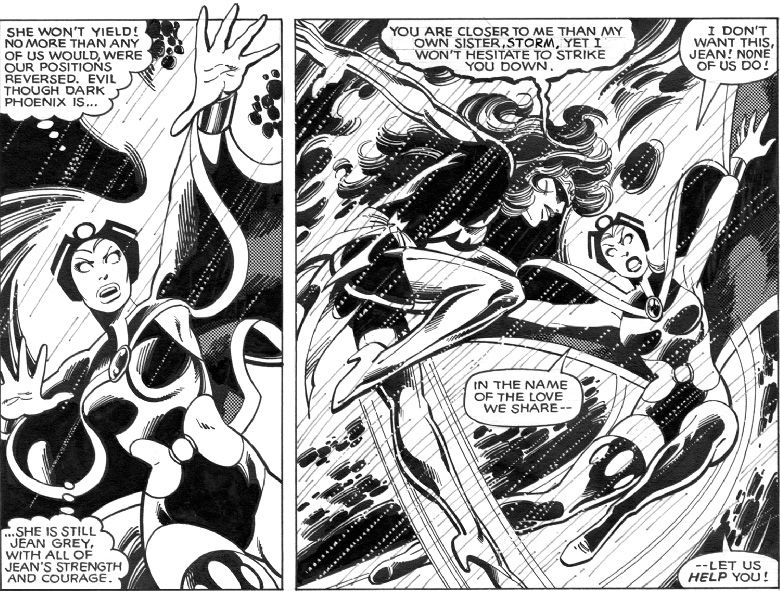Some comic book loves are such passionate, enthralling affairs that they can never be revisited. For me, the Uncanny X-Men was that book.
The other day I was sitting in a cafe, totally ignoring the ambient music they were playing, when suddenly a song came on which took me right back to when I was a tiny little kid, listening to my first album over and over (and over) again. Madness were singing My Girl and without even remembering how, I knew every damn word of the song. It was weird because I don't think I've listened to it once in the intervening years, but it had really stuck. It was great, remembering a time when those lyrics I knew so well didn't make sense to me. By the time I had got to the point of finally having a relationship (and then smothering each other enough to need space), when I might have finally understood the song, I'd moved on to greener musical pastures.
Back then I loved Madness, I listened to them as if there were no other music in the world. I can't remember when, but at some point there was all this other music to listen to and Madness fell by the wayside. Until I heard My Girl in the cafe had forgotten how much I'd loved them, I had inadvertently sealed that up in a little mental time-capsule.
Similarly, there is one comic book which I once loved to pieces and yet have never wanted to reread. This series totally and completely absorbed my attention. It consumed me, I read and reread each issue until they began to fall to pieces and then I lovingly stashed them away in boxes, only to completely ignore them. These were the first comic books to shape my growing aesthetic, and in turn every other aspect of my taste, not just in comic books but in life.
These comics were Chris Claremont, John Byrne and Terry Austin's run on the Uncanny X-Men. An early run of 10 or so which I had in the British, black and white, over-sized reprints.
Did I always prefer monochromatic comic books and design, or did I learn to love it through the clean, sparse lines of Byrne and Austin? At this point it is impossible to say, but I do know that for a few years there were no other comic books that I reread in the same way or with the same frequency that I read those Uncanny X-Men. Nothing else had as much impact, visually.
While I can't pin some things down, this was definitely the birth of my obsession with American comic books (as apposed to my previous broad interest in any cartoon drawing I could get my hands on.) Available only to me in those magazine-sized, black and white reprints I rifled through every magazine rack in every store I could, trying to find the eye-catching, full-color color covers of a new issue. At the time I had never read anything with such an emotionally charged, hyper-dramatic undercurrent to every story, nor such beautifully fluid artwork as the alchemy between John Byrne and Terry Austin. I was captivated by the swirling cloaks and flowing lines, even as the extreme reactions and power struggles progressed.
Stumbling upon this comic book series for the first time, it was smack in the middle of some story arc involving an incredibly powerful escaped mutant. By all rights, I should have been lost. Nowadays people make a lot of noise about the difficulties of new readers and their potential reluctance to jump into ongoing storylines, but back then all I cared about was how I could find out more. Understanding that I was in the middle of a story, I set about finding the few preceding comic books that I could get my hands on.
Today I realize that despite this love, despite what it all meant to me back then, I've never sought to reread these comic books. Unlike nearly every other story that grabbed my attention since, I never felt the draw to revisit that time, and until I remembered my musical past this week, I never really thought about why.
First of all, it is an issue of quality. The old comic books are in the UK in a box somewhere, and the reprints I bought of them are the smaller, color format of the originals. The coloring on comic books in those days was quick and dirty, further simplified by the low-quality printing. For me all it really did was water down otherwise beautiful art (and my apologies to the colorists out there, but in those days the paper and impossible deadlines were to blame, not the hard-working professionals.) While I haven't reread those Uncanny X-Men, I did pick up Claremont and Sienckiewicz' reprinted New Mutants when they came out a couple of years ago. While Sienckiewicz's art was still innovative, Claremont's dialogue no longer had the thrall for me that it held back then. This is partly because his style of writing at that time worked spectacularly well for the melodramatic teenage version of me, but doesn't work as well for the slightly more sedate adult version of me that I've grown into.
More importantly, my desire to leave the book alone is also due to the mass murdering incarnation of Phoenix. Everyone talks about being shocked or outraged when Jean Grey died, but I don't remember caring much. By then I'd lost my deep investment in the characters. The horrible betrayal I felt at the changes in Phoenix hit hard. Who cared about the death of some red-headed girl in a green dress? It was Phoenix I'd fallen in love with and Phoenix's rise to power which enthralled me. Watching her discover her strength and sexuality was profound, and I never understood why she needed to go mad with power. It was what I think of as a classic Snow White syndrome. In the Disney version of Snow White, the main character's stepmother (the queen) is incredibly powerful. If she handn't gone "mad with power", taking everything to unhealthy extremes, she could have had a wonderful life as the second hottest and most powerful woman in the kingdom. Instead someone decided that women can't be hot and powerful, so she went "mad with power" and destroyed herself just like Phoenix did... Hence Phoenix came up against the Snow White syndrome.
The implication is that if only Phoenix had been less powerful, she might have been able to handle it. Sadly the comic creators imply that because she is simply a weak-willed woman, she cannot handle so much power, eventually it is all too much for her and she destroys herself by becoming evil. While I continued to be a loyal reader, the magic spell this comic book had cast upon me was broken and I took an emotional step back from it.
Now I can look back on the little time-capsule that this comic book represented for me and love it. Researching the book to talk about it now, I'm once again impressed by the quality and impact of the art and story. Without disturbing that fragile little bubble of comic book memory, I enjoy the time that was the evolution of the Uncanny X-Men and a deep love of comic books.

